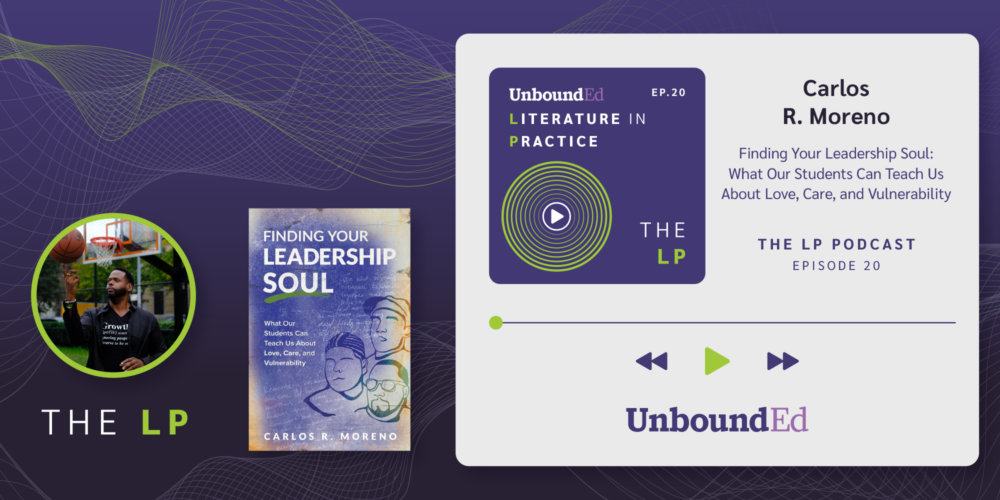How do we create a process were humanizing education leaders works in harmony with humanizing the students they serve? It’s hard for an educator to tend to the intellectual and emotional development of students if they don’t see how it’s inevitably connected to their own intellectual and emotional development. Join the discussion with Carlos Moreno, author of Finding Your Leadership Soul: What Our Students Can Teach Us About Love, Care, and Vulnerability and discover how the journey through this profession, if grounded correctly, can cause both educators and students to flourish.
Carlos Moreno is a New York native who has excelled as a teacher, principal, director, and now executive director. He is a dedicated educational trailblazer, passionate about creating innovative schools that address equity issues. Currently, Carlos serves as Co-Executive Director for Big Picture Learning, a nonprofit that has established over 200 such schools worldwide. He also co-founded the Deeper Learning Equity Fellowship and the Ashé Leaders Fellowship. Carlos is the founder and co-producer of the esteemed Leadership Journeys storytelling initiative, featuring inspiring figures like Christopher Emdin and Dena Simmons. With undergraduate degrees in marketing and business and a master’s degree in educational leadership, Carlos is a true observer, learner, and community builder. He is both a student and a teacher, constantly seeking his own Leadership Soul.
Key Takeaways
- Effective educators must truly know, embrace, and love their students as whole people, not just deliverers of content. Responsible vulnerability from teachers is key.
- A major barrier preventing more schools from adopting learner-centered, authentic learning models like Big Picture Learning is the convenience and inertia of traditional systems, rather than a lack of desire or interest.
- Equitable education thrives through strong relationships between students and advisors, providing relevant real-world learning experiences through internships, and rigorous project-based assessments.
- It is important for educators to avoid oversharing your personal trauma with students, but practice strategic and responsible vulnerability as an educator.
Resources
- Book: Learning to Leave: How Real-World Learning Transforms Education by Elliot Washor and Scott Boldt
- Podcast: Finding Your Leadership Soul, with Big Picture’s Carlos Moreno and Elliot Washor by High Tech High Unboxed
- Instructional Support: Instructional Moves: Project Based Learning by Harvard Graduate School of Education
- Article: Vulnerability Can Be a Strength for Educators. Let’s Embrace It. by Caitlin Krause (EdSurge)

